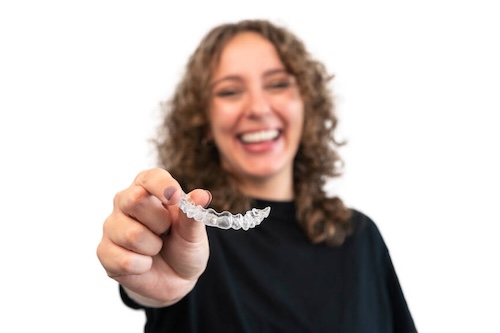After completing orthodontic treatment, your teeth may naturally shift back to their original positions. However, with proper post-orthodontic care, you can keep your smile beautifully aligned. This guide provides essential tips to ensure your teeth stay in place for the long term.
Why Is Post-Orthodontic Care Important?
Once your braces or Invisalign treatment is complete, your teeth naturally want to return to their previous positions. This is due to the ligaments and tissues needing time to stabilize. Studies show that up to 90% of patients experience some shifting if they don’t follow post-treatment care guidelines. To maintain the alignment achieved through orthodontics, regular care and follow-up are crucial.
How Can Retainers Help Preserve Your Smile?
One of the most effective tools in post-orthodontic care is the retainer. Retainers keep your teeth in their newly aligned positions, preventing them from shifting back. During the first year after treatment, your teeth are most prone to movement, so wearing your retainer consistently is key.
Types of Retainers
- Fixed Retainers: Bonded to the back of your teeth for constant support.
- Removable Retainers: Convenient for cleaning and eating but must be worn regularly.
Both types help maintain your alignment, and keeping them clean is essential to avoid bacteria buildup. For removable retainers, clean them daily using a soft toothbrush and mild soap.
Monitoring Your Alignment
In addition to wearing your retainer, it’s important to monitor your teeth for any signs of shifting. Performing regular checks in the mirror and attending dental checkups can help you catch early signs of movement. If you notice even subtle changes in your alignment, contact your orthodontist immediately to prevent further shifting.
Maintaining a Consistent Oral Care Routine
Maintaining good oral hygiene ensures that your retainer fits well and your teeth remain healthy. Brush at least twice daily and floss daily to keep your teeth and gums in top shape. If you play sports, a custom mouthguard is highly recommended to protect your teeth from injuries that could undo your orthodontic treatment.
What to Do if Your Teeth Start Shifting
If you notice that your teeth are starting to shift, contact your orthodontist right away. They may recommend wearing your retainer more frequently or adjusting it to fit better. In some cases, minor re-treatment may be necessary to get your teeth back in line. Additionally, if you lose or damage your retainer, don’t delay getting a replacement.
FAQs from Our Experts:
- How long should I wear my retainer?
Full-time wear is recommended for the first few months, then transitioning to nighttime use.
- Can I stop wearing my retainer after a few years?
It’s best to continue nighttime wear to prevent shifting, even years after treatment.
- What happens if I lose my retainer?
Contact your orthodontist immediately. The sooner you get a replacement, the less likely your teeth will shift.
Maintaining your post-orthodontic results requires commitment, but it doesn’t have to be difficult. Consistently wearing your retainer, keeping up with oral hygiene, and staying vigilant for any changes in alignment will ensure your smile stays aligned for years to come. If you notice any issues or need guidance, DeJesus Dental Group is here to help you protect your smile for life.
For unparalleled dental care and professional advice on maintaining optimal oral health, rely on DeJesus Dental Group – your dedicated allies in dental well-being. DeJesus Dental Group serves patients of all ages as a family-oriented dental practice with convenient locations in Bridgeport/Trumbull and Shelton. Choose DeJesus Dental Group as a committed partner in your journey towards dental wellness.
Disclaimer: The information provided in this blog is for informational purposes only and does not constitute medical advice. Consult with a qualified dental professional to determine the best orthodontic/dental treatment for your individual needs.

